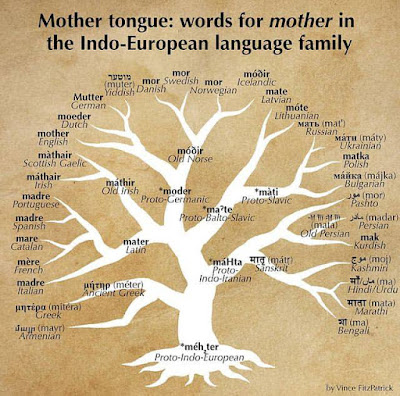Why Modern Heathen Feuding is Ridiculous
So I have lots of bigger stuff underway for the blog but it just isn't quite ready yet. This has been weighing on me lately though, and I just needed a rant.
Canadian Heathenry. There are only 13 inclusive Heathen kindreds in Canada that I can confirm on my inclusive Heathen group list. (If you have another one please contact me on social media or by email to have it added.) That is 13 groups. We have 13 provinces and territories in Canada. These groups are not evenly dispersed across all of them. In fact, many of them are multiple kindreds within the same cities even. The result is that the Canadian Heathen landscape is very isolationist. If you aren't able to travel you might never meet another Heathen or if you are lucky enough to be a part of a kindred, you may never meet another kindred.
But wait... Didn't I just say many kindreds are in the same cities?
Yeah. That is the point of this rant actually. This isn't about how isolationist Canadian Heathenry is, although that could easily also be another topic. This is about another phenomenon I see in modern Heathenry, more specifically in North America, but also it is particularly problematic in Canada because of the isolationist nature of Heathenry here. That is the phenomenon of feuds between tribes.
Now, I know historically in Heathenry feuds existed, but what exactly tribes were at that time compared to now was somewhat different. Historically tribes lived and worked together for survival. A slight against your kin was a slight against the community, and also potentially a threat against your survival or livelihood. In this context a feud makes more sense.
Now, Heathens both historically and in modern times are proud people, but sometimes pride is foolish and leads to unnecessary strife.
We must ask ourselves as well, if there are so few Heathen groups why is it that so often more than one exists in the same city? Well, the reality is groups split over differences in theology. Or differences of personality. This happens everywhere, and not even just in Heathenry. It is just more obvious when the Canadian Heathen population is so small. But I have talked to Heathens in other countries as well. Groups split for one reason or another as they grow. It doesn't have to mean that they can't come together for larger events though. Honestly, as long as you can agree on being inclusive it is a missed opportunity not to come together from time to time. I mean unless it was a case of abuse or something, then obviously, keep your distance. Common sense still applies.
I want to look at everyone’s favourite book, Culture of the Teutons, to see how historical feuding affected the tribe. I’ll make it easy for you if it is in fact not your favourite book, Chapter 2: Honour. When there is a slight against a person or their tribe then reparation is asked for. Usually this would be in the form of gold, a scyld price for a misdeed. If reparation does not occur then revenge will be sought, leading to a feud between tribes. Usually these sorts of feuds occur if a kinsmen was slain, but also they could occur if the honour of a man is tarnished. Now usually the man in question would be of high standing as it is said that the higher the man’s station the more “sensitive” they are to such slights. To insult a King would be far worse than to insult a Thrall.
As we can see, these sorts of feuds have no place in modern Heathenry, because there are no Heathen kings and it seems very unlikely one Heathen would kill another. The disagreements that occur in modern Heathenry have more to do with personalities in conflict, though neither party is of higher standing.
We have to ask ourselves if we as modern Heathens understand what was meant by feuding at all. In "Deadly Hostility: Feud, Violence, and Power in Early Anglo-Saxon England" by David DiTucci it is argued that the sorts of feuds represented in Beowulf are actually examples of a ritual feud, in which a single act of revenge resolves the imbalance between parties, rather than there being an ongoing relationship of feuding. These sorts of feuds were engaged in within courts to balance power, and were unlike the blood feuds we sometimes read about which lasted generations and were destructive to the luck and power of both parties. These blood feuds were actually fairly uncommon in the record. The purpose of the latter was to prevent any family from having a long term rule of an area, as they were in constant threat of being usurped. (Again, we see how this doesn’t really translate into the modern reality.) Feuding was a political strategy, more-so than it was about any one disagreement. Feud legitimized the use of violence between parties.
So are we trying to legitimize our own disagreements using the antiquated concept of feuding, rather than resolving our problems in our own communities? It definitely looks that way. I mean, it certainly is easier, when it comes down to it. Talking it out takes 2 willing parties. I do think though, we should at the very least aim to have working relationships between kindreds, even if friendships are out.
Further Reading:
The Culture of the Teutons by Vilhelm Gronbech
"Deadly Hostility: Feud, Violence, and Power in Early Anglo-Saxon England" by David DiTucci
"Family, Feud, and the Conduct of War in Anglo-Saxon England on England" by Elnathan Barnett
Image Source:
“Battle of the Doomed Gods” by Friedrich Wilhelm Heine, 1882.



